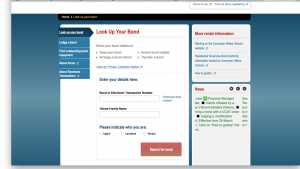RUOK? Day is an important mark in our calendar at Personnel Relocations. It is a time to check in with those relocations who have been a little quiet and make sure they are OK. It is never ok to just assume, “oh they’ll be alright”, which is a typical Aussie way of thinking.
Relocating is a life event with one of the highest stress ratings and the long-term effects can be devastating.
Personal experience in moving my family around the globe has taught me how a corporate can make a small effort with a huge impact. Not only did I spend 15 years moving around the globe with young children, but I have also spent 14 years helping other families move and settle. I understand what it feels like from both sides of the fence.
You do not need to be a large corporate to make a difference and the ideas I will share here are not budget-blowing expenses.
Let’s take a look at:
- What you can do in advance
- Steps to take during their arrival
- Continued success for the family and your employee- they go hand in hand and both make an impact on your ROI.
Prior to arrival
It is not enough to only make sure that the employee fits the role/organisation. Moving country is not just changing a job, there is a ripple effect across the family, that can take years to adjust. Take a minute to think of these factors too.
Work-life balance
We all know the importance of a work-life balance and its benefits to your organisation.
Take a step back. If you moved country, how would life look for you on a Saturday afternoon?
Surely you are plucked out from your social network, your family is in another time zone and you are lonely. You’re possibly scrolling through Facebook with FOMO as everyone back home gathers around a BBQ and sends messages saying “Wish you were here!”
With this in mind, have these conversations in advance, and where possible, with the family unit, not just the employee. Most people I relocate have very clear boundaries on what they see as work life and what is home life. Trust me, in their eyes, HR does not need to blur the lines, it is uncomfortable for them to share what is happening at home.
Listen, adapt and be flexible
Relocation policies need overhauling. I prefer to call them a framework because, in this modern age, there needs to be more flexibility.
One ex-pat explained how she did not need language lessons; she needed an hour with a career coach to understand how she could work in Australia. Expats can be seen as “demanding” but in fact, most just want some flexibility.
Another consideration is if the family relies on dual income. And one of the biggest reasons an assignment fails is that the spouse–a highly motivated and skilled person themselves–cannot work. If the corporates offer some flexibility in their relocation package, the employee is far more likely to say, “Well this is the issue we have, is there a possibility of exchange?” Having an open framework allows for discussion and transparency.
Related article: Three personality traits to look for in your international assignee
During the Relocation
Understand that as a family moves through a relocation, there are cycles of anxiety and excitement. It is a rollercoaster of emotions that pull at the very heart of your security and identity, it rips you from the comfort of your community, which most people do not anticipate. The future seems very unclear although maybe exciting.
But to be honest, unless you have moved previously, you have no idea about the sense of loss you are about to feel. When I moved, it felt like someone else was pulling the strings on my life – the corporate, who I could not see or talk to. It is not a great feeling.
So here are some you can do to help your employees:
Mental Health Policies
Most organisations these days have Mental Health Policies in place. Use these policies and processes as a starting point to replicate for your new arrival.
Peer-to-Peer Programs
I see a lot of success with these programs, but some failures too. The most common mistake is that the allocated “buddy” has nothing in common with the new arrival. They struggle to find an ice breaker or common interests and the conversations stall.
Pair them with a common interest. This could be anything such as they share the same “home” country or even could have attended the same university…perhaps they play golf. This gives a starting point.
It is not always enough though. Does the buddy you have allocated have the skills and tools to help the new arrival? Have a conversation with them to get them thinking in advance what they can do to help the new arrival. Trying to think up “stuff” on the day won’t cut it.
The future success of the relocation
Hobbies
When we move a family, one of the questions we ask is about their sports and hobbies – for each member of the family. Wasn’t I surprised one day when a corporate client asked me “What does Helen’s husband enjoy doing?” I explained he is an avid surfer and they really want a home where Michael can get down to the beach after work.
The client contacted a local surf shop and asked if one of their surf teachers could take Michael out to show him the local breaks. They also followed this up by making sure Michael was paired with some of their employees who also surfed. So when Michael arrived in a new network, he had a positive experience and made the right start. That is caring, it did not take much, just someone to have initiative.
Cultural events
Hosting cultural events will fling open the doors of communication and understanding. It gives employees a way of explaining their culture in a welcoming way. Cultural awareness is imperative across any organisation. This subject will have its own article to follow, as it is fundamental to the success of any international assignment.
Onboarding program
Corporates that have an international onboarding program that exposes their new arrival to local initiatives can be extremely vital. There are so many opportunities for migrant support here in Australia that people don’t know about. You can try
- Free Career Counselling for their spouse perhaps
- Organisations such as Families in Global Transition (FIGT) that host events with other new arrivals who can relate to what your employee and their family is going through
- MeetUp events.
- Family day out passes, Zoo, Museum, and Picnic hampers
The list is actually endless if someone takes the time.
How many organisations send out a survey post-relocation to gauge the employees’ experience? Does this go to the new employee, or to the family? Remember, the employee does not usually want to talk about home life, so you might get a very grey survey result.
How a relocation service provider can help
As HR, you might not see it as your place to pry into the family circumstances. I know many who invite the couple out for dinner, but be that as it may, there might not always be time.
If, however, the corporate has engaged a caring relocation service provider, they should be holding consultations in advance of arrival and ensure the family is “onboard”. A caring relocation service should encompass the whole family, know them, support them and manage their expectations on behalf of the corporate.
Relocation consultants should be talking with the family well in advance, not just when they arrive. They should be able to assist with everything in this article. Have a service provider you trust who will take the time to understand the family’s needs and welcome them personally. Relocation support is not just a “tick the box” it is about people and everyone is different, so let’s have relocation support that is flexible to meet the unique needs of each family.
Personnel Relocations simplifies the process of relocation to make it comfortable and hassle-free at an affordable price. With excellent care and the right guidance, Personnel Relocations can help your employees make the right start in Australia.
We understand that every relocation is different and each one has different goals. To contribute to your employees’ settling in Australia, we have alliances with experts such as relocation mentors, life coaches, cross-culture trainers, baby equipment hire, business communication specialists, local and international furniture removals, interior designers, decluttering, unpacking and setting up trades services who can help with specific needs.
It is not unusual for Personnel Relocations to handle the full suite of relocation needs, all from just one call.







